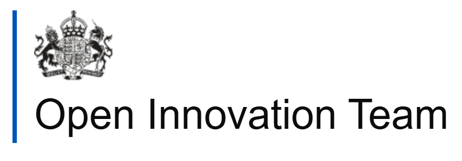Civil Service placement

Caroline Jarvis, a Quadram Institute student completed her placement during the last three months of her second year with the Open Innovation Team (OIT), a cross-government unit which works with experts to generate analysis and ideas for policy, helping colleagues review evidence, engage experts, develop policy and evaluate impact.
The OIT placement opportunity was advertised via the PIPS monthly newsletter and Caroline applied as she wanted to gain more of an understanding of how government operates, from civil servants and policy makers through to ministerial roles. She also wanted to learn how academic evidence informs policy and how researchers can ensure their work has impact. Caroline was also very lucky in her timing, as she was able to start her placement in the Civil Service immediately after the results of the 2024 general election, which caused lots of interesting political changes.
As Caroline’s work was politically sensitive, she had to sign an NDA and ensure she always upheld the Civil Service attributes. Caroline conducted a confidential research project for a government department which involved synthesising evidence, interviewing experts and drafting client-facing reports. The academics interviewed for the project also had to sign NDAs. She participated in weekly client meetings with the government department that commissioned the research project and produced progress briefing documents. The work she contributed to the project will be used to inform high-profile policy decisions and will be eventually relayed to ministers.
The OIT also works with academics at partner universities, to provide advice, training and workshops on increasing the policy impact of their research. As part of this, Caroline produced a report and presentation containing policy analysis which was delivered by her project manager at a partner university, the University of Essex, to inform future strategy decisions.
Caroline was delighted with how much she contributed to the work of the team. She felt she was regarded as a valued colleague and expert on the project, as she was asked to make decisions about the direction of the research and final report. Her work was often passed to the client and her report was distributed to academics at the University of Essex, an unexpected but positive experience for her. She was praised by her manager for her creativity and problem-solving skills alongside being able to see the big picture of policy decisions. The team regularly hosts concurrent PhD internships, Caroline enjoyed talking to the other interns in her cohort and benefited from this peer support.
The project was very fast-paced and was organised quite differently to Caroline’s PhD project, with frequent meetings, targets and deadlines. Caroline worked closely with her project manager to achieve the goals of the project within the time limits. She noted how policy communication differs to science communication, with presentations containing a different style of writing and content presentation to allow the key messages to be quickly understood. She believes using this technique will be useful with her future poster presentations.
Caroline said completing her placement in her second year was excellent as she can now focus solidly on her PhD research project for her final two years.
